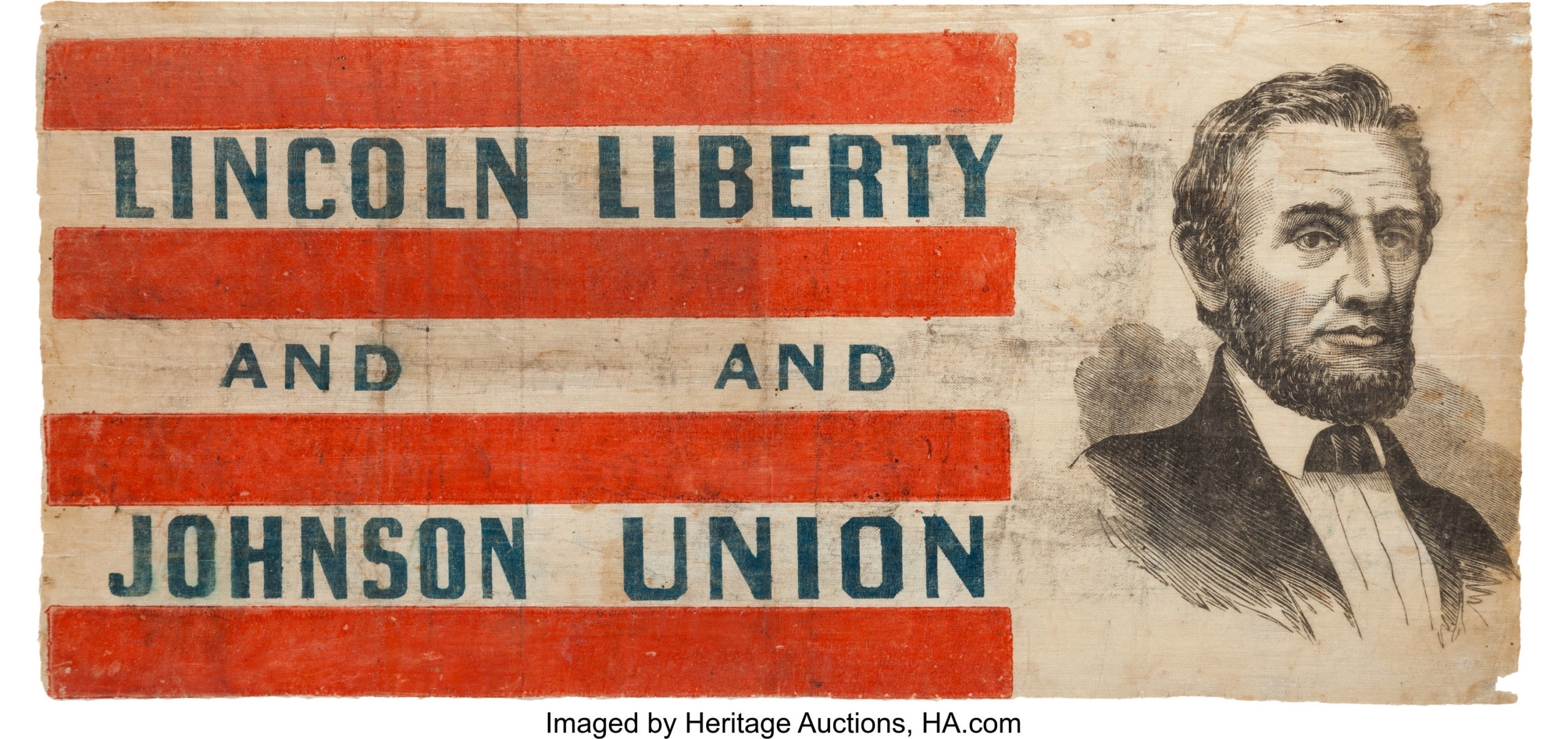The United States has never delayed a presidential election. The COVID-19 pandemic has caused many people to question if we should have an election this year. There has only been one other instance in which some wondered if the country should: when the nation was embroiled in the Civil War. While we are not in the midst of a Civil War (even if at times it feels like it), let’s look at how the election of 1864 was handled during a dark time in our country.
The 1864 election was the second U.S. presidential election to take place during wartime (the first was during the War of 1812). It wasn’t the logistics of carrying out a wartime election that made some people want to postpone it. Rather, it was the fact that by the spring of 1864, the Union had no clear path to victory, and many feared President Abraham Lincoln wouldn’t win reelection. Lincoln’s biggest weakness was that the Union’s war against the Confederacy wasn’t going well. By the spring of 1864, the Civil War had been going on for three years with no end in sight, and many voters (white men ages 21 and up) were tired of fighting. Lincoln’s advisors believed his chances for winning reelection looked grim, but Lincoln didn’t want to delay the election.
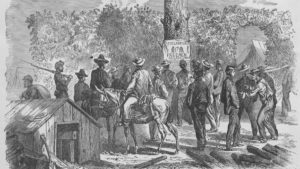
Soldiers reading postings about the 1864 election.
Some Republicans argued that the country should “postpone … a Presidential election for four years more … (until) the rebellion will not only be subdued, but the country will be tranquillized and restored to its normal condition.” The New York Sunday Mercury, in a widely reprinted article said holding the election during civil war would render “the vote … fraudulent,”. The nation would “flame up in revolution, and the streets of our cities would run with blood.”
The election pitted Abraham Lincoln and his running mate Andrew Johnson, the military governor of Tennessee, against former commander of the Army of the Potomac, Maj. Gen. George B. McClellan and running mate George Pendleton. McClellan ran on a peace platform, hoping to sway voters who were tired of the Civil War. Lincoln’s campaign position was that there would be no ceasefire until the south rejoined the north and ended slavery. In contrast, McClellan said his only condition for ending the war would be that the Confederate states rejoined the Union.
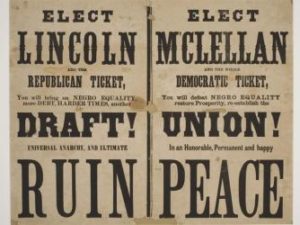
Anti-Lincoln campaign pamphlet
Gen. Ulysses S. Grant was struggling to give a definitive blow in Virginia, and as the brutal summer of 1864 wore on, his armies continued to suffered staggering losses. War weariness was rampant, as Union armies struggled to overwhelm Southern forces. Many losses across the South especially in Georgia and Virginia had Northerners believing the war was lost.
Lincoln acknowledged his grim prospects on August 23, 1864, in a letter to his cabinet: “This morning, as for some days past, it seems exceedingly probable that this Administration will not be re-elected. Then it will be my duty to so cooperate with the President-elect as to save the Union between the election and the inauguration; as he will have secured his election on such grounds that he cannot possibly save it afterwards.”
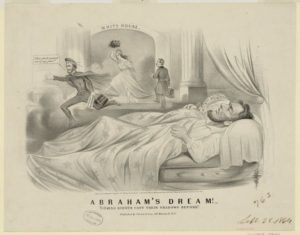
The artist portrays a president tormented by nightmares of defeat in the election of 1864. The print probably appeared late in the campaign
Despite the odds against him, Lincoln won in a landslide. He took every state except three. He received 55% of the popular vote and 212 electoral votes to McClellan’s 21. A large portion of the Union soldiers voted for Lincoln as well, showing their willingness to keep fighting and refusal to accept defeat. Ultimately, what helped Lincoln win was that in the two months before the election, the Union had major military victories by capturing Atlanta and winning a major battle in the Shenandoah Valley. These victories boosted morale among both civilian and military voters.
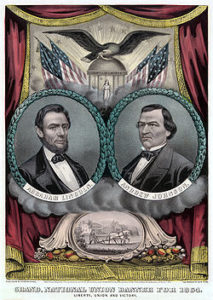
Campaign banner for 1864 Republican presidential candidate Abraham Lincoln and running mate Andrew Johnson
Lincoln’s win in 1864 was significant for many reasons. One of the larger ones was that it showed the strength of America’s democracy. The fact that we were able to hold an unhindered election during a nationwide war shows this strength. Lincoln even stated:
“We cannot have free government without elections; and if the rebellion could force us to forego, or postpone a national election it might fairly claim to have already conquered and ruined us.”
Lincoln’s Second Inaugural Address, given a month before Robert E. Lee’s surrender and Lincoln’s own assassination, presented words of reconciliation and courage for the future. We can only speculate what might have happened if Lincoln lost, his win allowed the fight to preserve the Union to continue. 5 months after Lincoln’s reelection the Confederacy had fallen.
With the state of current events in our country, it is wise to reflect and see how we handled the election situation in the past. How we proved that we can come together as a country and still vote and make decisions even if we seem so divided. Now how exactly did people (white men) vote when so many were spread across the country due to the Civil War? Next week, we will dive into that and how it occurred.





